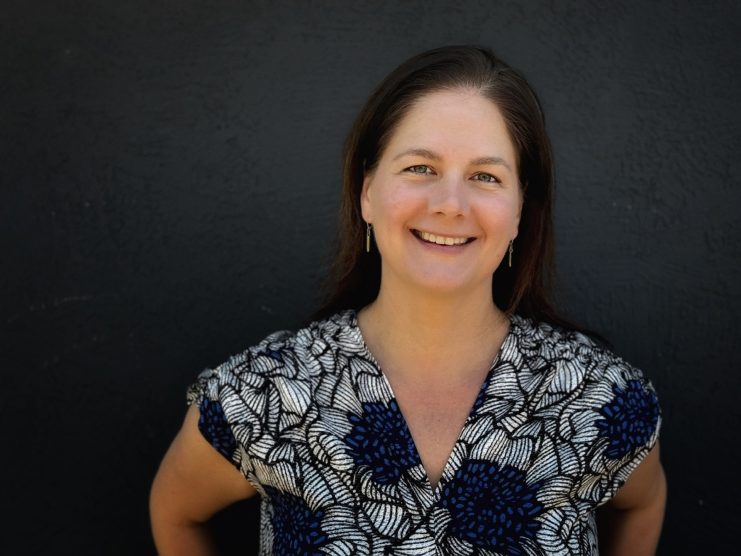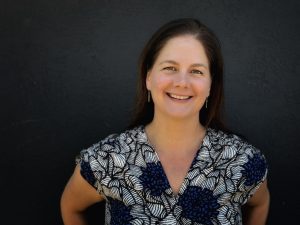
Creating Space for Meaning-Making in Professional Development Brings Adult Learning Back to the Classroom
“Oh no, no no, this is not going to work.”
Oof. I gulped… swallowed hard, and felt my heart pound in my ears and my face redden. I was tempted to offer a rebuttal, something like “But this is my whole job, this is what I do, and this is how I do it,” but deep down, I knew she was right. As someone who has spent the last few years providing behavior-focused professional development training to educators and support staff, this was hard feedback to hear from a leader who had just heard a trial run of a training for her staff. She asked me “Where is the adult learning? Where are the opportunities to make meaning?” To that, I did not have an answer.
As a Behavior Analyst working for SPG Therapy and Education, a multidisciplinary provider of professional services in Special Education, I design and conduct nearly all of the requested behavioral training for school districts. For the past several years prior to this feedback, I had been giving mostly online behavior workshops due to the COVID-19 pandemic. Participants were coming to my sessions describing serious behavioral challenges with students. They expressed feeling alone and frustrated. Up until that point, my approach had been to give them as much information as I could, thinking that the volume of content would directly correlate to the impact it could have in the classroom with students. In tandem, I was witnessing plummeting participation and engagement in my PD sessions (picture a zoom meeting where everyone except me had their video off) and I had a growing suspicion that it was very unlikely that anything I was presenting was making its way back into the classroom. I, like my audience, was feeling alone and frustrated, and this feedback was the tipping point I needed to consider a different way forward. How could I create meaningful professional development experiences that would improve educators’ experience in the classroom, and positively impact students as well?
Thankfully, the feedback I received was punctuated with encouragement to look into Lead by Learning’s conditions and mindsets for adult learning, so I went to their website, downloaded the playbook, and reached out to them to ask for help. During the 23-24 school year, I received monthly coaching from Lead by Learning to integrate adult learning more robustly into my training.
As a starting point, I had seen Oakland Unified School District’s Expanded Learning Program and Special Education utilize CASEL’s 3 Signature Practices, and this seemed a really easy initial shift to attempt to make. The signature practices include:
- Opening each session with an inclusive welcome, or a question or prompt to bring in the voices, challenges, interests, and expertise of the participants. This allowed me to use relevant examples throughout, and also attempt to focus on specific aspects they noted were areas of importance or struggle.
- Embedding very intentionally designed engaging strategies, or meaning-makers to embed between layers of new information that provided ways to digest the material by integrating it with their own experiences, wisdom, perspectives, and previous training.
- Finally, I ended each session with an intentional close, which asked the participants to think about and name how they can bridge the new information back into their classrooms.
These seemingly simple changes yielded dramatic results. Participants started leaning in, they were activated and joyfully participating. They were engaging with the material and each other in a whole new way. I suspected this change might increase the chances that the workshop content would make its way back to students, and positively impact behavior and learning.
In addition to the 3 signature practices, I started creating opportunities for movement, small-group work, and activities that utilized various props such as chart paper, stickers, and sticky notes. This allowed participants to SEE what was coming up in the form of visual data, and also provided me with a way to take their voices back with me and consider for next time. Lastly, with Supportive Challenge from my Lead by Learning coach, I very intentionally shifted from an expert stance, or taking up all of the airways unless there were questions, to a facilitator stance, or sharing the airways more equally with participants, and weaving in the participant’s voice as equally as valuable. Instead of painting over my participant’s experiences and wisdom with new information, I witnessed the value of adding new information as a broth to the unique and valuable ingredients the participants arrived with.
While doing a student observation last fall, I ended up in the classroom of a teacher who had attended one of my workshops the previous summer. She excitedly greeted me and showed me the system she had created to acknowledge positive behavior during art class as a result of my workshop she had attended. She reported the positive impact it was making on behavior, and that it was fun and easy to use. She showed me the cascade of the work I was doing. Her learning was making its way back to the classroom, and it was positively impacting students!
In my most recent pitch with the same leader who said “oh no no no this just won’t do,” I described a workshop I developed for Expanded Learning Site Coordinators where they would be provided with guidance and tools to design and implement a continuum of responses to more effectively and compassionately address interfering behavior in their programs. This time her response was very different. She said ”DeAnna, you just gave me goosebumps.”
 DeAnna has been Board Certified in Behavior Analysis since 2006 and has worked in Community Mental Health, Non-Public Schools, Private ABA Agencies providing both in-home and school based services. Now as a Senior Clinical Supervisor at SPG Therapy and Education, a multidisciplinary agency based in the Bay Area, her work includes mentoring other Behavior Analysts, consultation in classrooms and designing and presenting behavior-focused professional development workshops. She is passionate about supporting educators with developing behavioral strategies that are effective, efficient, and improve student access to learning while maintaining the teacher-student relationship. DeAnna enjoys cooking, gardening, and reading as well as practicing Spanish, and dragging her bulldog out on walks.
DeAnna has been Board Certified in Behavior Analysis since 2006 and has worked in Community Mental Health, Non-Public Schools, Private ABA Agencies providing both in-home and school based services. Now as a Senior Clinical Supervisor at SPG Therapy and Education, a multidisciplinary agency based in the Bay Area, her work includes mentoring other Behavior Analysts, consultation in classrooms and designing and presenting behavior-focused professional development workshops. She is passionate about supporting educators with developing behavioral strategies that are effective, efficient, and improve student access to learning while maintaining the teacher-student relationship. DeAnna enjoys cooking, gardening, and reading as well as practicing Spanish, and dragging her bulldog out on walks.
Interested in working with Lead by Learning to support your design and facilitation of professional learning? Connect with a member of our team to learn more about our partnerships.
